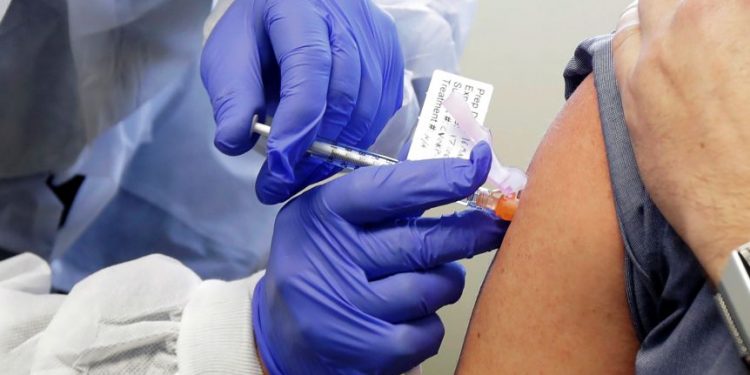Melbourne: Australia stopped Friday the further development of a COVID-19 vaccine candidate. This decision was taken as several participants in the early-stage trials generated antibodies for HIV. The antibodies were generated after they received the potential therapeutic.
There were no serious adverse events or safety concerns reported in the 216 participants of the phase 1 trial. They are being carried out for the v451 COVID-19 vaccine candidate being developed by the University of Queensland (UQ) in collaboration with biotech company CSL, according to a statement.
However, data showed that some patients developed antibodies towards fragments of a HIV protein (gp41), which was used to stabilise the vaccine, the statement added.
Following consultation with the Australian Government, UQ and CSL decided not to progress the vaccine candidate to phase 2 and 3 clinical trials.
The vaccine was one of four candidates that Australia had committed to buy. Accordingly agreements were made to secure 51 million doses of the experimental vaccine.
UQ said the trial participants were fully informed of the possibility of a partial immune response to this protein component. However, it was unexpected that the antibody levels induced would interfere with certain HIV tests. The university said there is no possibility the vaccine causes infection, and routine follow up tests confirmed there is no HIV virus present.
The decision was taken after the makers consulted experts who worked out the ‘implications’ that this issue presents to rolling out the vaccine into broad populations, it said.
Reacting to the announcement, Australian Prime Minister Scott Morrison said abandoning the trial should show the government and researchers were proceeding carefully.
“What happened today is not a surprise to the Government. We are moving swiftly but not with any undue haste,” Morrison said. He added the system’s working as it should and Australians are protected, as always.
The University of Queensland commenced the phase 1 trial of v451 in July 2020, to assess its safety and immunogenicity in healthy volunteers. It said the vaccine candidate has shown that it elicits a robust response towards the novel coronavirus and has a strong safety profile.
However, significant changes would need to be made to well-established HIV testing procedures in the healthcare setting to accommodate rollout of this vaccine, according to the statement.







































